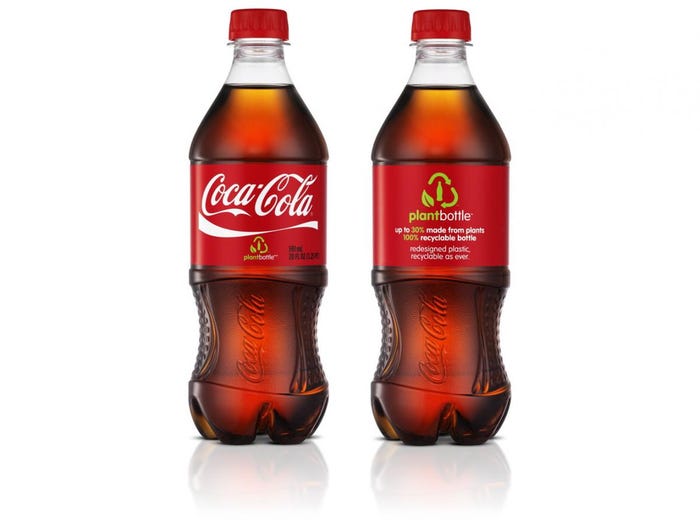Eight of the world's leading consumer brand companies and conservation group World Wildlife Fund (WWF) have announced the formation of the Bioplastic Feedstock Alliance (BFA) to support the responsible development of plastics made from plant material. Their goal is to help build a more sustainable future for the bioplastics industry.
November 20, 2013
Eight of the world's leading consumer brand companies and conservation group World Wildlife Fund (WWF) have announced the formation of the Bioplastic Feedstock Alliance (BFA) to support the responsible development of plastics made from plant material. Their goal is to help build a more sustainable future for the bioplastics industry.
Partners in the new initiative are The Coca-Cola Company, Danone, Ford, H.J. Heinz Company, Nestle, Nike, Inc., Procter & Gamble, Unilever and the World Wildlife Fund, all of whom have joined together to "encourage a more sustainable flow of materials, while helping to create lasting value for present and future generations," according to a statement on the website of the alliance.
 The past years have seen a spectacular growth in the development and consumption of bioplastics, which has partly been driven by consumer demand for alternatives to oil-based materials. Consumers across the world increasingly are looking for more sustainable products, including those made from plant-based plastics. Yet, at the same time a number of critical issues have come into focus, such as resource competition for food, land, water and energy, which represent challenges to the future growth of the bioplastics industry. As BFA founding member Unilever has pointed out, renewable is not the same as sustainable: it all depends on agricultural practices.
The past years have seen a spectacular growth in the development and consumption of bioplastics, which has partly been driven by consumer demand for alternatives to oil-based materials. Consumers across the world increasingly are looking for more sustainable products, including those made from plant-based plastics. Yet, at the same time a number of critical issues have come into focus, such as resource competition for food, land, water and energy, which represent challenges to the future growth of the bioplastics industry. As BFA founding member Unilever has pointed out, renewable is not the same as sustainable: it all depends on agricultural practices.
Market demand for food and fiber will only continue to increase in the coming decades. Responsible sourcing of these materials - making sure there is enough to go around - is the key to enabling sustainable growth.
The primary focus of BFA will therefore be on guiding the responsible selection and harvesting of feedstocks, such as sugarcane, corn, bulrush, and switchgrass, which are used to make plastics from agricultural materials.
Past debates have focused on the ethics of using food crops to make bioplastics. And while various studies have since been published - by Nova-Institute and European Bioplastics, to name two recent studies - that have addressed the issue, attempting to de-emotionalize the discussion by pointing to measurable factors such as land availability and land use, it nonetheless remains a highly sensitive topic.
"This alliance will go a long way in ensuring the responsible management of natural resources used to meet the growing demand for bioplastics," said Erin Simon, of WWF. "Ensuring that our crops are used responsibly to create bioplastics is a critical conservation goal, especially as the global population is expected to grow rapidly through 2050."
BFA intends to bring together leading experts from industry, academia and civil society to develop and support informed science, collaboration, education, and innovation to help guide the evaluation and sustainable development of bioplastic feedstocks.
It is seeking to identify the potential impacts of the bioplastic industry and possible measures to mitigate them in order to help move the bioplastic industry's emerging supply chain in a positive direction.
Second generation bioplastics made, for example, from the by-products of forestry, agriculture or the food chain - such as molasses or cane residue - or non-food sources such as algae, cellulose and waste products, represent one of the directions of interest.
BFA member, Nestlé, for example, has expressed interest in exploring their use, while the BFA's only automaker, Ford, is already using rice hulls, a byproduct of rice grain, as a natural replacement for talc in the electrical harnesses of the 2014 F-150 trucks.
About the Author(s)
You May Also Like


